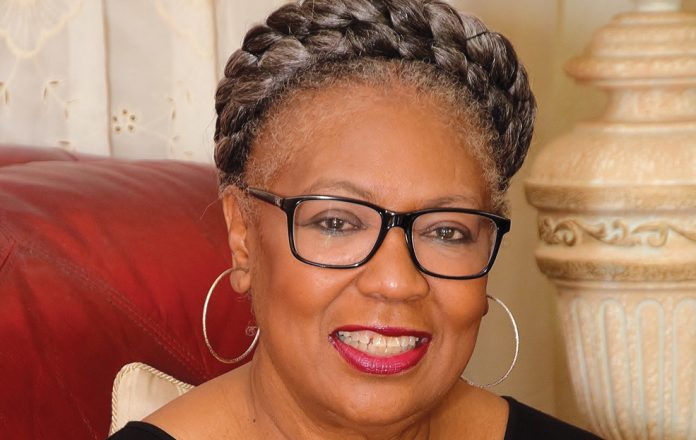A Local African American Icon Shares Her Cancer Journey as part of National Black History Month
Joyce Jackson has accomplished many great things in her 79 years of life. She was A person with braided hair wearing glasses Description automatically generatedthe first African American female broadcast journalist in the state of Oklahoma; she was recently inducted into the Oklahoma Journalism Hall of Fame, earning a lifetime achievement award; and she is the founder and editor of the Shades of Oklahoma magazine.
But perhaps the distinction and blessing she is the most proud of is that she is a cancer survivor!
Jackson first discovered kernels in her breasts back in high school. A biopsy determined they were not cancerous and she was encouraged to receive annual breast exams as well as conduct regular self-exams at a very young age. She did not experience any issues for the majority of her adult life. Then in 2022 at the age of 77, she felt a tiny bump in her left breast while conducting a self-breast exam in the shower. “I wondered if the kernels were coming back,” she remembers. “I had no idea what was in store for me.”
As luck would have it, Jackson’s next breast exam was scheduled for just a few days after she discovered the lump. She told the examiner at the INTEGRIS Health Comprehensive Breast Center of her concern, and a 3D ultrasound was ordered in addition to the regular mammogram. These tests uncovered more than the one lump Jackson felt while showering. A biopsy confirmed it was cancer. “No woman wants to hear that,” admits Jackson. “I was stunned. After all these years of never having a problem, one tiny little bump changed my world.” (story continues below)
JaNae Clapp, M.D., at the INTEGRIS Health Cancer Institute, was Jackson’s oncologist; and Mary Lindemuth, M.D., with INTEGRIS Health Medical Group Breast Surgery, was her surgeon.
A person holding a bell Description automatically generatedJackson underwent a mastectomy, six cycles of chemotherapy and 15 radiation treatments. She is doing well with no signs of cancer recurrence. “When I got to ring the bell signifying the end of my treatment, it was an overwhelming experience,” she declares. “I cried all the way home, happy tears.”
Jackson wanted to share her story in February as part of National Black History Month. She knows that compared to members of other races, black and African American people have higher rates of getting and dying from many kinds of cancer.
African Americans have a higher cancer burden and face greater obstacles to cancer prevention, detection, treatment and survival. Research has shown that black women are 40% more likely to die of breast cancer than white women and are twice as likely to die if they are over the age of 50.
Conversely, prostate cancer death rates in black men are more than double those of every other racial/ethnic group. It is for these reasons that African Americans need to be extra vigilant about receiving their annual exams.
Jackson knows firsthand that early detection saves lives. “I hope that all people, but especially those in the African American community, educate themselves on their inherent risk and follow the recommended screening guidelines. I did, and I believe that is the reason I am alive today.”













